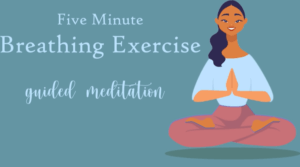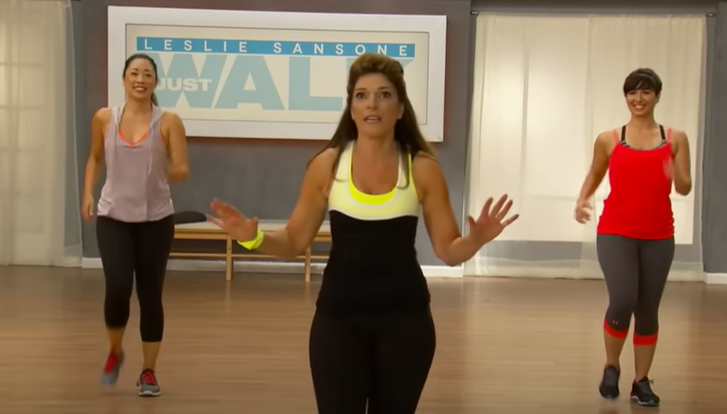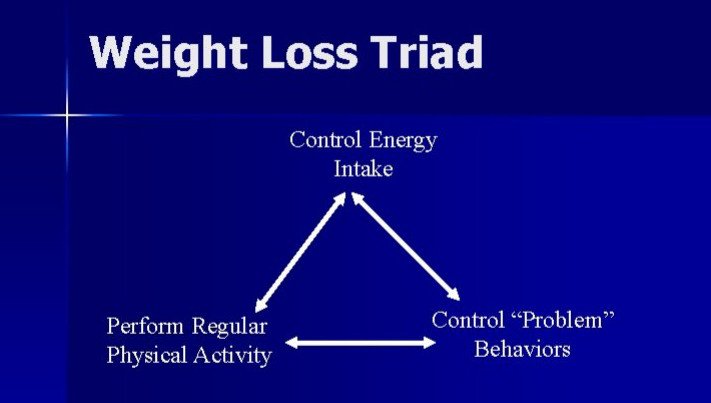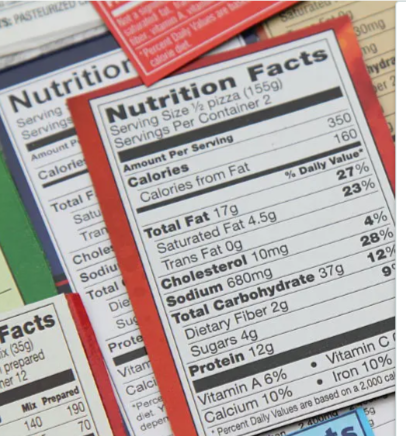How Do You Break A Habit – Preparation is Key
You might not realize it, but a large part of your day is likely governed by habits. Whether it’s reaching for your phone first thing in the morning or grabbing a snack at a certain time. So, how do you break a habit? 
How Do You Break a Habit?
These actions are deeply ingrained in your routine. I’ll explain why and how this happens and answer your question- how do you break a habit. It’s all rooted in the psychology of habits and some pretty intriguing brain science.
The Brain’s Reward System to Break a Habit
At the core of habit formation is the brain’s reward system. What starts as a conscious decision, over time, becomes an automatic response due to positive feelings or outcomes.
The Habit Loop
When this happens, the brain starts associating certain cues with the pleasure of the reward. It then creates a loop that is difficult to break. Understanding this cycle – the cue that triggers the behavior, the routine of the behavior itself, and the reward at the end – is crucial. This is known as the habit loop.
The habit loop is reinforced every time you experience a positive outcome from your habit. It’s like your brain is taking a shortcut because it’s learned that a certain action leads to a feel-good reward.
This is why your morning coffee becomes an automatic part of starting your day. Your brain anticipates the reward of alertness and comfort. 
Recognizing how habits are formed in our mind is the key to understanding why breaking them is a challenge. And that’s where your journey to breaking a habit begins.
How to Break Bad or Good Habits?
It isn’t just about stopping an action, though. It’s about rewiring parts of your brain. But here’s the good news: this same science that locks us into bad habits can also be harnessed to help us break them.
Now that you have a grasp on the science behind habit formation, it’s time to shine the light on your own habits.
To discover your habits do the following:
- Identify what triggers your habits
- Understand why you find some habits harder to break than others.
Self Awareness is Key to Breaking a Habit
This self-awareness is your first powerful step toward transformation. It’s exactly what we’ll explore in the next section. Get ready to dive into the nitty-gritty of your own habit landscape and start paving the way for change.
Recognizing Your Habits
The First Step to Breaking a Habit
In my opinion, the bedrock of any successful habit-breaking journey is self-awareness. It’s about taking a step back and really noticing what’s going on when a habit kicks in.
However, before you even think about ditching a bad habit, you need to spot the cues that trigger it. Don’t worry too much about tracking every little thing you do, though. Focus more on the habits you really want to change.
Here’s How You Get Started
Start a Habit Diary
Building a habit audit is incredibly enlightening. So, you want to keep a habit diary for a few days, or even a week.
To build your habit audit here are a few suggestions:
- Jot down the habit you’d like to break
- What triggered it
- How you felt before and after
- What reward you were seeking
Soon, patterns will start to emerge, and that’s going to include insights into both your good and bad habits.
Distinguish the Good or Bad Habits
On that note, it’s crucial to know the difference between habits that serve you and those that don’t. Prioritize the habits that you feel are holding you back the most.
Not All Habits are the Same
Remember, not all habits are created equal. Some might need a more strategic approach than others.
Share Your Goals With Others
A lot is happening very quickly once you start this process, and it may seem overwhelming. That’s why I suggest you share your goals with someone. It could be a friend, a family member, or even an online community. Having someone to share your struggles and successes with makes a world of difference in staying on track.
Strategies for Breaking Bad Habits Effectively
Create a Detailed Plan
Creating a detailed plan is crucial when you’re looking to break a bad habit. This is about knowing what you want to achieve and why it matters to you. Start by defining specific, achievable goals and write them down. You also have an option to get a habit-tracker to help you keep records of your journey.
State Why You Want to Break the Habit
It’s also a good idea to establish clear reasons for why you’re aiming to kick this habit, as these motivations will fuel your discipline.
Replace Bad Habits With Good Ones
Sometimes, the best way to deal with a bad habit is by replacing it with a better one. That means if you’re used to grabbing a sugary snack when stressed, try reaching for a piece of fruit instead, or go for a quick walk. The idea is to keep the cue and reward similar, but change the routine in between.
Remove the Temptation to Break a Habit
Your environment plays a major role in your habit-breaking journey. Remove temptation wherever possible. This is a biggie. This takes guts and wisdom. Just do it anyway. 
For example:
- If social media is your vice, delete the apps off your phone
- If junk food is the issue, clear it out from your home.
On the flip side, make good habits easier to adopt by laying out your workout clothes the night before if you’re aiming to exercise more.
Habit-Tracking Apps and Online Resources
In this age of technology, you’re not alone in your efforts to break bad habits. There are numerous apps and online resources that help track your progress and keep you accountable.
From habit-tracking apps to forums where you share experiences and gain support, these tools are invaluable allies.
Spilling the Tea About New Habits
Habits are recurring patterns of behavior that are acquired through frequent repetition. They are deeply ingrained routines or tendencies that we carry out almost automatically, often without conscious thought.
Some habits good, some bad. Some are beneficial, some are detrimental. However, they play a significant role in shaping our daily lives, productivity, and overall well-being. https://www.youtube.com/watch?v=4qykb6jKXdo
Forming Good Habits
Developing good habits is a process that requires conscious effort, discipline, and persistence. Here are some key steps to forming good habits:
1. Identify the desired habit:
Clearly define the behavior or routine you want to establish as a habit. Be specific and make it measurable.
2. Start small:
Begin with a manageable goal that is easy to achieve. Don’t try to overhaul your entire lifestyle at once. Small, consistent steps are more likely to stick.
3. Create a trigger:
Establish a cue or trigger that will prompt you to engage in the desired behavior. This could be a specific time, location, or activity that serves as a reminder.
4. Make it enjoyable:
Incorporate elements that make the habit enjoyable or rewarding. This increases the likelihood of sticking to it over time. 
5. Leverage existing routines:
Piggyback the new habit onto an existing routine or habit that you already have. This makes it easier to integrate into your daily life.
6. Remove obstacles:
Identify and eliminate potential barriers or sources of friction that could impede the formation of the new habit.
7. Track your progress:
Monitor your progress and celebrate small victories along the way. This reinforces the behavior and provides motivation to continue.
8. Be patient and persistent:
Forming a habit takes time and consistent effort. Stick with it, even when motivation wanes or you encounter setbacks.
How Long Does It Take to Form a Habit?
The time it takes to form a habit varies from person to person and depends on the complexity of the behavior. However, most experts agree that it typically takes anywhere from 21 to 66 days. It also takes a level of consistent repetition for a behavior to become a habit. This range is based on research studies that have examined habit formation. 
It’s important to note that the exact time frame is not set in stone and is sometimes influenced by various factors.
These factors include things such as:
- The difficulty of the habit
- Your level of motivation
- The presence of supportive environments or triggers
Repetition and Reinforecement to Breaking Habits
The key is to be patient, persistent, and consistent in your efforts. Habits are formed through repetition and reinforcement over time. Once established, they become automatic and ingrained in your daily routine.
Address the Underlying Triggers
Remember, breaking bad habits is just as challenging as forming good ones. It often requires replacing the undesired behavior with a more positive alternative. You also must factor in the need to address the underlying triggers or motivations that drive the bad habit.
Understand the Principles of Forming Habits
In summary, habits are powerful forces that shape our lives. By understanding the principles of habit formation and applying them consistently, you will cultivate positive routines that support your goals, enhance your productivity, and contribute to a healthier, more fulfilling life.
Obstacles are a Part of the Journey
As you implement these strategies, you will face obstacles, such as cravings, social pressures, or simply forgetting your new routine. This is normal, and it doesn’t mean you’ve failed.
Up next, I’ll discuss how to tackle these setbacks and how to ensure your hard-earned changes stick over the long haul.
Overcoming Obstacles and Maintaining Change
Did you know that the road to breaking a habit is rarely a straight path. It’s normal to encounter bumps along the way, but the key is learning how to move past them without getting derailed. 
Analyze Your Setbacks
Turn your setbacks around. Don’t let them discourage you. They’re a natural part of the change process. If you slip up, don’t beat yourself up. Instead, analyze what led to the setback and use it as a learning opportunity to strengthen your strategy against old habits.
Manage Stress Levels
Stress is often a trigger for returning to bad habits. Managing stress is crucial. So, start strategizing for success.
This involves techniques such as all the following:
- Mindfulness Physical exercise
- Engaging in hobbies that relax
- Avoid the temptation of the habit you’re trying to break
Build Resilience
Building resilience is about adapting well in the face of adversity. When you’re trying to change a deeply ingrained habit, view each day as a new opportunity for growth. Even if yesterday didn’t go as planned, no worries. You can change things up down the road. 
Celebrate Your Small Wins
Remember to celebrate your successes—no matter how small they may seem. Acknowledging your progress helps to build confidence. It also reinforces the positive behavior changes you’re making. Whether that’s a simple self-congratulation or a tangible reward, small wins make a big difference.
Create a Sustainable Lifestyle
This journey isn’t just about eliminating a habit. You also need to establish ongoing healthy patterns. Therefore, the emphasis is on creating a sustainable lifestyle shift rather than seeking a quick fix.
Reflect on Your Progress
Regular reflection on your progress and continued commitment to your goals helps solidify the new behaviors as a permanent part of your repertoire.
Now, transitioning to the next section, you’ll find situations where the habit you’re trying to break feels overwhelming. It may also seem to have a deeper hold on you than you initially thought.
That’s when it’s time to seek professional help, which is what we’ll explore in the next section. However, let me take a step back to talk about how I made my 180 degree turn around. Here we go. 
My Personal Transition to a Healthier Lifestyle
For the record, embracing a new habit is not as hard as it seems. However, preparation mentally, physically, emotionally, and socially is quintessential.
Embracing healthy habits is crucial for overall well-being. It induces longevity and enhances the quality of life. My personal experience serves as a life-changing testament to the significance of adopting positive lifestyle changes. The profound impact of change in one’s life is pretty awesome, in my humble opinion. 
Preparation is Vitally Important
Preparation is key when embarking on a journey toward healthier habits. It requires a holistic approach, encompassing mental, physical, emotional, and social aspects.
Mental Preparation
Mental preparation involves cultivating a growth mindset, setting realistic goals, and developing a strong commitment to the process.
Physical Preparation
Physically, it involves a gradual incorporation of healthier choices into one’s routine, such as eating more nutrient-dense foods and increasing physical activity levels. What better way to embark on a new lifestyle than with a fitness routine. Start with dumbells. You start with a walking program or DIY home gym. It’s as simple as that. Whatever floats your boat.
Emotional Preparation
Emotionally, it’s essential to cultivate self-compassion and resilience, as change is always challenging, and setbacks are inevitable. I’m not going to lie, it gets gloomy at times in the beginning.
Social Preparation
Socially, surrounding yourself with a supportive network provides a level of encouragement, accountability, and a sense of community. I enrolled in my local nutrition center. As a results, I met life-long friends that are great. Wehold each other accountable. 
The Consequences of Bad Habits
My story of transitioning from poor dietary choices to a healthier lifestyle was life-saving. All of the detrimental effects on my health taught me a lot of life lessons. To this day, I still have a much better relationship with food. After all, nutritious foods are our friend, indeed.
The Vital Signs of Change
Truth be told, I no longer suffer with high blood pressure, high cholesterol, and elevated blood sugar levels, like I did in the past. The fact that I personally encountered multiple ER visits due to my unhealthy lifestyle is a sobering reality check.
Healthier Lifestyle is Productive
However, my last ditch decision to take to heed my doctor’s advice was instrumental to my overall well-being. Embarking on a journey towards a healthier lifestyle was the best thing I’ve done, in terms of my health.
In addition, I’ve added regular exercise, adequate sleep, and proper hydration to my routine. I also treasure connecting with family and frieds as much as possible.
Not only has my life improved on all levels, per se, I’ve also increased my productivity, creativity and motivation100% as well. Doesn’t get any better than this, my friends. 
My regular routine embraces all of the following:
- Regular exercise (walking is my go-to)
- Aim for7-8 hours of sleep each night (night owl in the past)
- Plus, I drink lots of water versus drinking way too many Pepsis
This demonstrates the power of taking proactive steps to reclaim my health, right?The benefits of adopting healthy habits are numerous and far-reaching.
Here a few advantages of taking charge of your health:
- Improved physical health
- Increased energy levels
- Better management of chronic conditions
- Reduced risk of developing various diseases
Additionally, embracing healthy habits positively impacts mental well-being, cognitive function, and emotional resilience.
Raising Awareness About Health and Well-Being
My mission is to inspire and support others in making similar transitions. By sharing my personal experiences, it will, hopefully, raise awareness about the importance of adopting healthy habits. [lasso category=”exercise” link_id=”1073″ type=”grid”]
Developing New Habits
In addition, my story provides a relatable and inspiring example of how change is possible, even in the face of deeply ingrained patterns. 
The Long-Term Rewards are Invaluable
Indeed, our health always takes precedence over temporary comfort and indulgence in unhealthy choices. The journey towards a healthy lifestyle seems a bit daunting, initially.
However, the long-term rewards of improved quality of life, vitality, and longevity make it a worthwhile investment in oneself and one’s future.
When to Seek Professional Help
Breaking habits is often a DIY project, but that’s not always the way to go. There are times when a habit becomes so ingrained and so intertwined with our daily functioning. Just reading about techniques isn’t enough. In my opinion, there’s no defeat in seeking help – it’s just another step towards a better you.
Counselors and Therapists at Your Beck and Call
If your battle with habits is leaving you feeling overwhelmed and tied to deeper issues, it’s crucial to recognize when to call in the pros. Don’t stress too much about reaching out. Counselors and therapists are like coaches for your personal growth.
Cognitive-Behavioral Therapy
Cognitive-behavioral therapy (CBT) is one effective method professionals use to help people change negative habits and thought patterns. It’s practical, usually short-term, and focused on the here and now, which might be just what you need. 
Books and Online Courses
And don’t forget, there’s a wealth of resources at your fingertips. From books and online courses to support groups – choose something that resonates with you. All of these strategies are tailored specifically to your lifestyle and challenges.
Remember, your first attempt doesn’t need to be your last. Don’t be so hard on yourself. The most important part is that you keep moving forward.
I really hope that these insights empower you to take on the challenge of breaking those pesky habits. I’d love to hear your feedback, so feel free to leave your comments or reach out for more personal advice.
Here’s to breaking the cycle and embracing positive change! 
Founder, Rachele
(web) mybluegenes.com
(email)rachele@mybluegenes.com






